When we began in 2020, Art Hx Constellations and Concepts were guided by three core frameworks
Pathologies of Difference
Pathologies of Difference maps the ways medicine and race shaped colonial expansion and traces their impact on perceptions of racial difference, disease and health today.
Cultivating Care
Cultivating Care considers the many meanings of care in the practice of (historical) interpretation and the practices of health and medical treatment.
Medicalized Space
Medicalized Space focuses on the ways medicine as a field of knowledge was used to interpret, categorize and circulate meanings about humans and their environments.
35 themes offer a focused lens to explore the core frameworks.
-
These objects relate to the study and visualization of human anatomical structures including organisms, cells, and tissues. It addresses how historical anatomical representations of the human body produced ideas of biological differences or sameness and the social and political consequences of these images.
-
How does the design of spaces and implements shape our knowledge and experiences of health? This theme explores the production and organization of medical spaces, implements, and devices and how they inform practices of care.
-
Colonial projects have produced racialized conceptions of a “normative body,” pathologizing differences in phenotype. This theme examines the construction, visualization, and stigmatization of bodily differences, such as size, skin color, and other characteristics.
-
Processes of creating visual representations of the earth and specific regions have been central to the colonial enterprise. Cartographers produced maps as tools that facilitated exploration and travel while ordering space by framing portions of the world as spatially, racially, religiously, and climatically distinct.
-
How health services are organized, delivered, and perceived in communities. It probes the various access levels of public health resources in different cultural and geographic contexts.
-
This theme examines how criminalization and punishment affect physical and mental health, exploring the racialized implications of colonialism, enslavement, and access to healthcare.
-
This theme explores objects related to teeth, the mouth, oral hygiene, and related diseases and care.
-
This theme visualizes how colonialism, slavery, and conceptions of race have influenced communities' access to food and nutrition, and the related health implications.
-
The colonial project influenced ideas of “normative” and “nonnormative” bodies. This theme explores how these conceptions shaped ideas of disability and physical/mental ability.
-
This theme focuses on the endocrine system and related disorders, exploring how colonialism shaped the body's automatic feedback systems and how artists visualized these effects.
-
Medicine was a site of struggle for enslaved communities. This theme presents and honors the healing practices and knowledge of enslaved peoples, showing their contestations and resistance.
-
This theme examines how the natural world impacts health, and how environmental differences were used to validate colonialism and ideas of racial superiority.
-
This theme examines the tools and techniques of eugenics, a movement based on the idea of genetic superiority, and its use in justifying racial oppression and genocide.
-
This theme reveals how marginalized bodies were exploited in medical and scientific experiments, shaping much of modern medical knowledge.
-
Medical care has been a site through which gender is socially constructed. This theme traces how gender has influenced the quality and type of care individuals received.
-
This theme investigates the exploitation of enslaved Black women in the development of modern gynecological and obstetric medicine and its ongoing legacy.
-
This theme examines the historical and contemporary uses of herbal treatments, exploring colonial and capitalist exploitation of natural remedies through bioprospecting.
-
This theme explores the care individuals receive in medical institutions, including the colonial history of hospitals staffed by imperial officers and physicians.
-
This theme honors Indigenous healing practices that have been appropriated or suppressed by colonial science, while also influencing medical knowledge.
-
Examines how colonialism and slavery shaped labor mandates, their impact on physical and mental health, and the relationship between labor and medical study.
-
This theme traces the institutional training of medical professionals and how they determine and wield medical authority.
-
Explores how mental health has been constructed as an object of medical knowledge and social control, particularly focusing on marginalized communities.
-
This theme traces the history of pediatric medicine, its successes, and its complicity in colonialist efforts to discipline marginalized families.
-
This theme traces the colonial history of the pharmaceutical industry and the monopolization of medicine production and access in the global South.
-
This theme examines the governance of health at the macro level, through policy, infrastructure, and education to prevent disease and promote healthy lifestyles.
-
This theme investigates how the containment of infectious diseases, like plague or smallpox, has shaped borders, urban planning, and interpersonal relations.
-
This theme examines the health-related challenges faced by rural communities, revealing the medical inequities and strategies for overcoming healthcare access issues.
-
Examines how the authority of science has been used to justify racial hierarchies, focusing on the pseudo-scientific basis of race as a biological fact.
-
Explores how sexually transmitted diseases have been pathologized, reinforcing hierarchies of gender, sexuality, and race.
-
This theme examines how medicine focusing on skin has generated ideas about race, health, and beauty, particularly through artistic representations.
-
Explores the intersections of medicine, spirituality, and organized religion, revealing how colonial medicine disseminated through religious missions.
-
This theme reveals the pathologization of tropical regions and their peoples in medical knowledge, connected to colonial control over these spaces.
-
Examines how war and violent conflict have shaped medical knowledge, injury treatment, and the relationship between healthcare and military practices.



